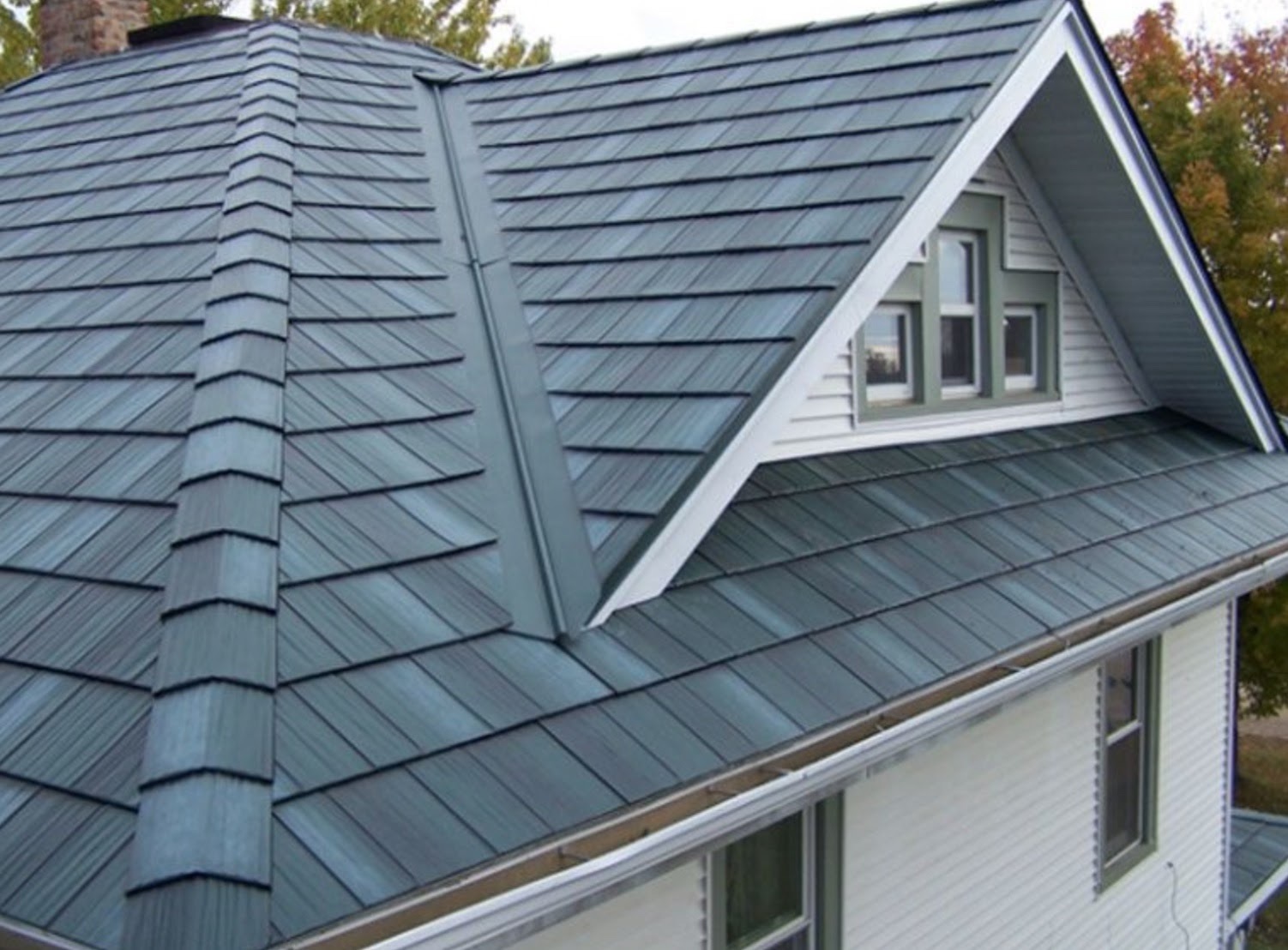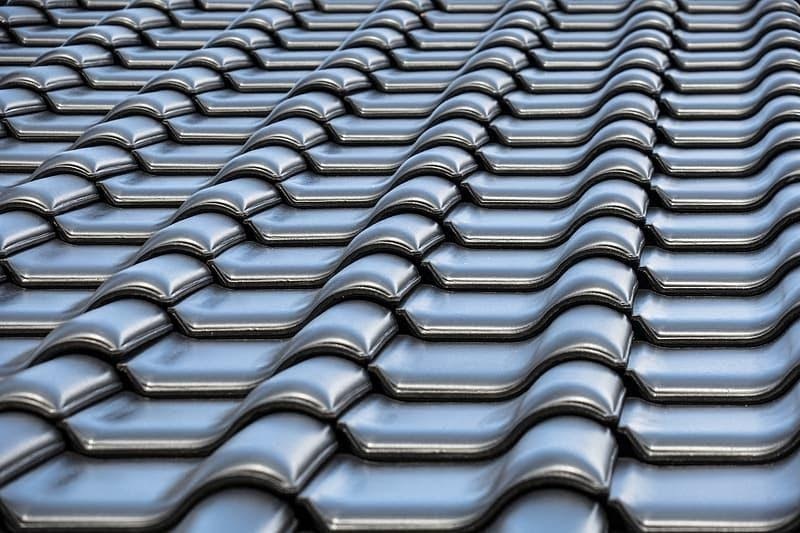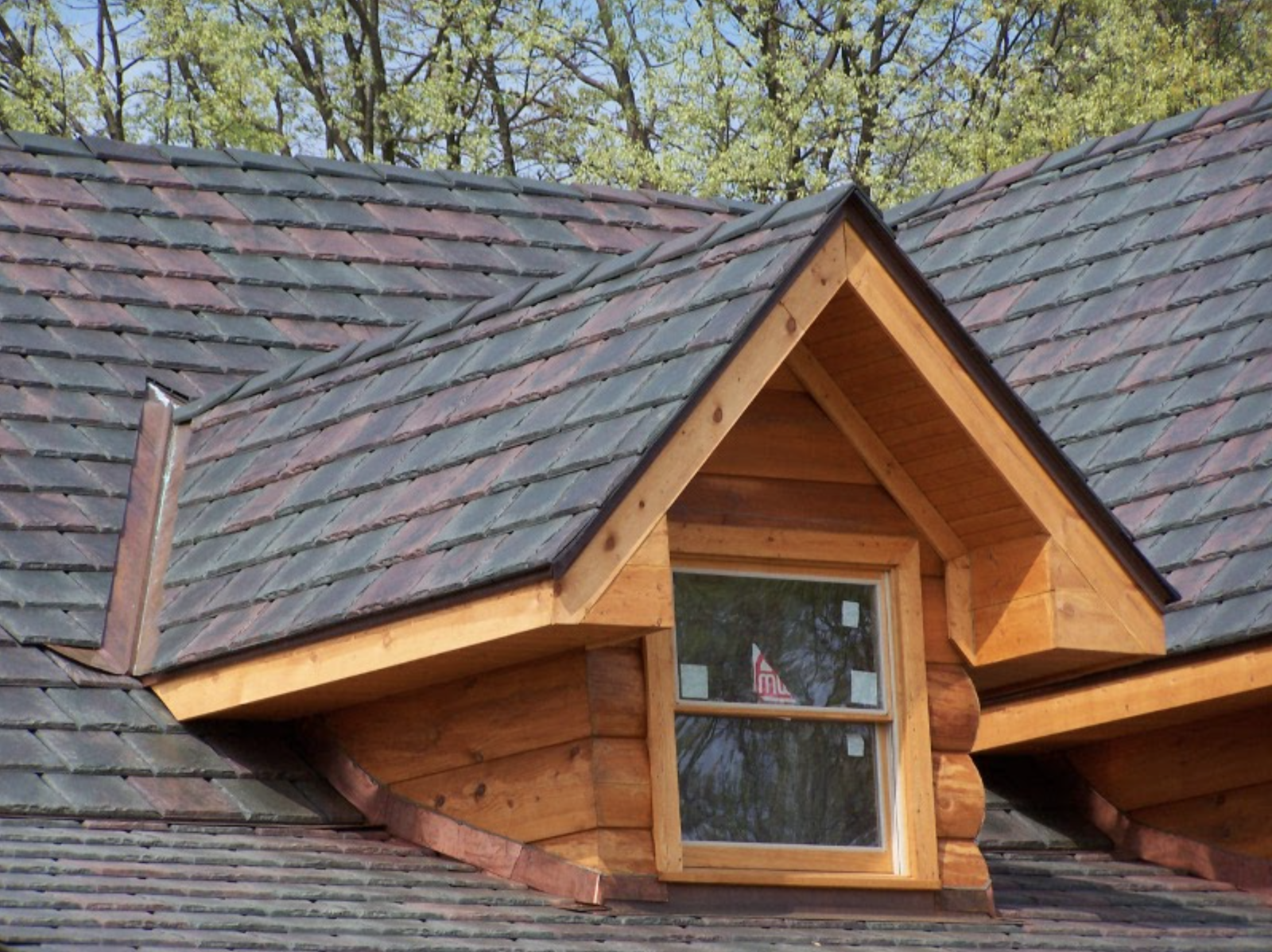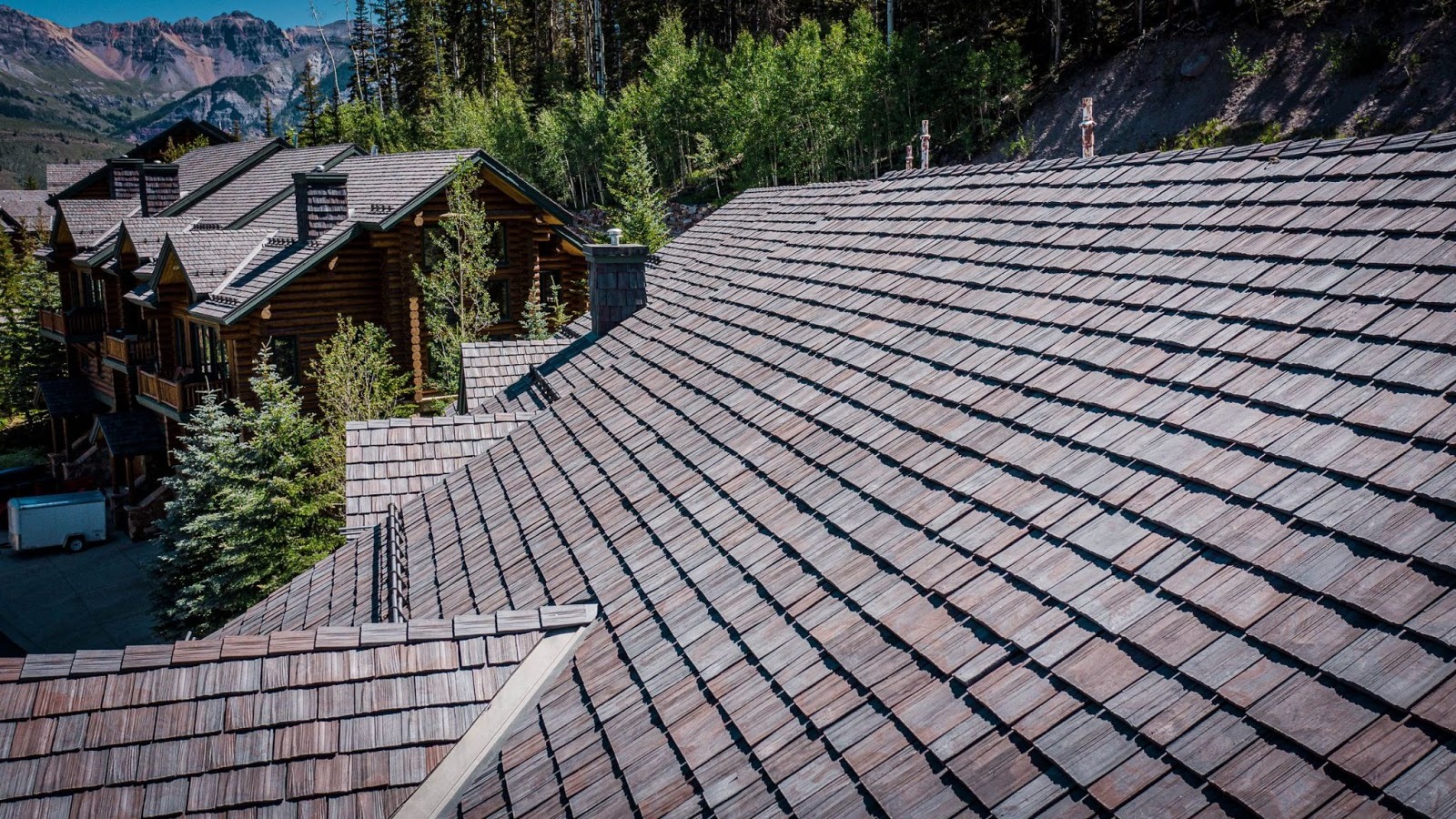All roofing materials basically perform the same function: to keep elements out of the home.
But that’s where the similarity ends.
There are many factors that affect your decision of tiles to use for your home, including the warranty, availability, durability, tile design, color options, and curb-appeal.
However, the most important factor when choosing a roof tile is the composition material of the tiles or shingles, especially when you are trying to decide between metal vs composite roofs.

The History of Metal and Composite Synthetic Roof Tiles
Both metal and composite roof tiles started being used commercially in the mid 1800s — though many believe composite roofs to be a relatively new invention.
Metal Roof Tiles: A Brief History
The use of metal roof tiles roofing began in Europe in 1857 when the process of galvanizing metal with zinc produced metal roofing resistant to rust.
It was then used in the U.S. on the U.S. Mint in New Orleans during the mid 1800s soon after, and because the ships base was made out of iron, this helped introduce the tin roofing to the public.
Fortunately, the development of rolling mills made tin roofing more affordable and readily available, making it the the most popular roofing at the time until current and more modern developments in the roofing industry.
History of Composite Roof Tile
Composite, or synthetic slate roof tiles, were manufactured in Europe in the 1800s and then in the U.S. at the start of the twentieth century.
The earliest roof tiles were made from Portland cement and asbestos. They performed well, provided a high resistance to heat and moisture, and they were fireproof.
But eventually, the need to remove the asbestos from the material makeup caused manufacturers to experiment with different plastics. It was then that they discovered and fully developed the synthetic roof tile that is available in today’s market in the forms of shake, slate, asphalt and clay.
How Do Metal Roof Tile Designs Compare To Composite Roof Tiles?
Metal
Since tin was easy to form, some of the early metal shingles were manufactured with many different designs, which fueled their popularity amongst the public. In fact, metal roof tiles and designs are still easy to produce today. Due to the advances in metal fabrication, there are many design options available that can be used for modern architectural purposes.

Composite
However, fabricated metal cannot replicate the most popular roofing products--composite roof tiles: cedar shakes, slate, and clay barrel tiles.
Composite roof tiles, made from recycled plastics, can be molded to mimic the natural environment of the house in every way.
Not to mention, the texture and the depth composite tiles, combined with the color variety, makes the synthetic tiles almost indistinguishable from others when it come to design possibilities.
Advantages Of Composite vs. Metal Roofing Tiles
Durability And Maintenance
Metal
Metal is one of the most durable materials used in construction. As such, metal roof tiles can last 50 years or more, and they can retain their original shape without fading. However, it's important to keep in mind that metal will bend and dent more easily than a solid composite roof tiles
Composite
Composite tiles are made with a variety of colors that fade much slower than those of metal tiles. In addition, synthetic roof tiles can be walked on for maintenance, without fear of damage.
Availability
Metal
The predominant material used in metal roofing is steel and it is widely available. However, the more attractive metal roofs are made from copper, zinc and aluminum, which are much more expensive and not as easily sourced. The other downfall is that few colors exist for these materials, making design ideas fewer than desired.
Composite
Composite roofing tiles are available throughout the U.S. and Canada, and since the base material is the same for most of the designs, there are no issues obtaining the raw product to produce the tiles. Unlike metal roofing materials, synthetic tiles are available in almost unlimited amount of colors and blends, putting the design in the hands of the homeowner.

Installation
Metal
Depending upon the material used, a recent 2021 survey shows that the average price for installing metal roofing is $850 - $1650 per square (100 sq ft).
Composite
A similar survey shows the average price to install a composite tile roof at $770 -$1150 per square. Of course, these are averages and it will depend upon the availability of materials and labor in your area.
Which is better: Metal vs. Composite Roof Tiles?
When you consider price, availability, durability and curb appeal, composite roof tiles -- especially Brava's composite tiles--are the best choice for a long-lasting, beautiful roof.
Brava has manufactured custom colored synthetic Cedar shake, Spanish barrel tile, and Old World Slate for years, and our products can be found on homes and businesses all over the U.S. and Canada. (Just view our photo and video galleries).

In addition to a 50-year limited warranty, we also offer a selection of “cool” technology roof products that meet California’s Title 24 requirements.
These roof tiles keep your home or business cooler in the summer, reducing the wear and tear on your air conditioning equipment and saving your money year after year on utility bills.
Contact us today to request a quote or free samples, and check out a few of our preferred contractors.
For more homeowner information, please visit the links below:



